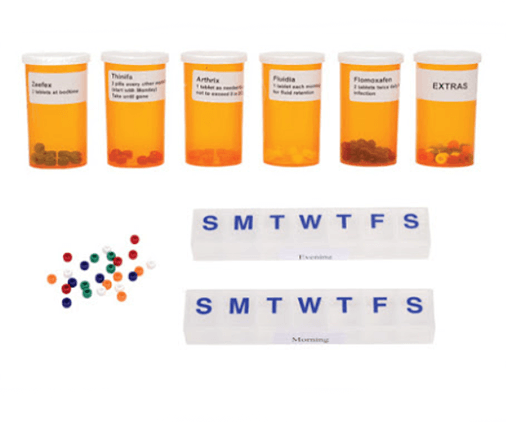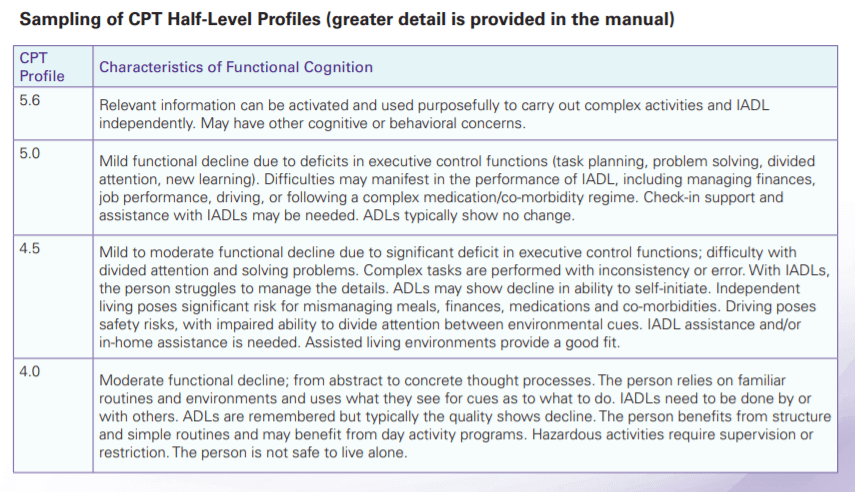What Is the Cognitive Performance Test?

The Cognitive Performance Test (CPT) is a standardized, performance-based assessment that evaluates how cognitive impairments affect a person’s ability to complete everyday tasks. Widely used by occupational therapists, the CPT provides valuable insight into functional cognition, helping guide treatment planning and care recommendations.
Who Benefits from the Cognitive Performance Test?
The CPT is ideal for use in skilled nursing, rehabilitation, and community-based settings. It’s especially useful for evaluating individuals with:
- Dementia or Alzheimer’s disease
- Traumatic brain injury (TBI)
- Stroke or neurological conditions
- Psychiatric disorders affecting cognition
This tool helps clinicians make informed decisions about discharge planning, level of supervision, and rehabilitation potential.
Quck Facts
Age Range: Adult/Geriatric
Test Type: Standardized & performance-based
Administration Time: 45 minutes
Publication Year: Manual revision 2018
Author: Developed by author and researcher Theresa Burns, OTR
Administration Time: Individual
Scoring: Range from intact performance (level 6 or 5) to profound disability (level 2)
Subtest
Each subtest repeatedly measures working memory and executive functions at progressively more complex levels. The specific task is less important than the way in which the client responds to gradually increasing task demands and task complexity. The seven subtests are:




- Medbox
- Phone
- Travel
- Shop
- Wash
- Toast
- Dress
Scoring
Each subtask is rated with a performance level score (e.g. 6.0;5.0; 4.5 etc.). Subtest scores are then averaged, providing a total score. Scores are based on average performance over time.
Profiles & Performance Patterns
The CPT profiles identify corresponding issues of IADL concern. A half-level profile system is used (5.6;5.0;4.5;4.0;3.5;3.0;2.5;1)

Burns, Thereasa (2018). Cognitive Performance Test (CPT) Revised Manual 2018 Maddak.
